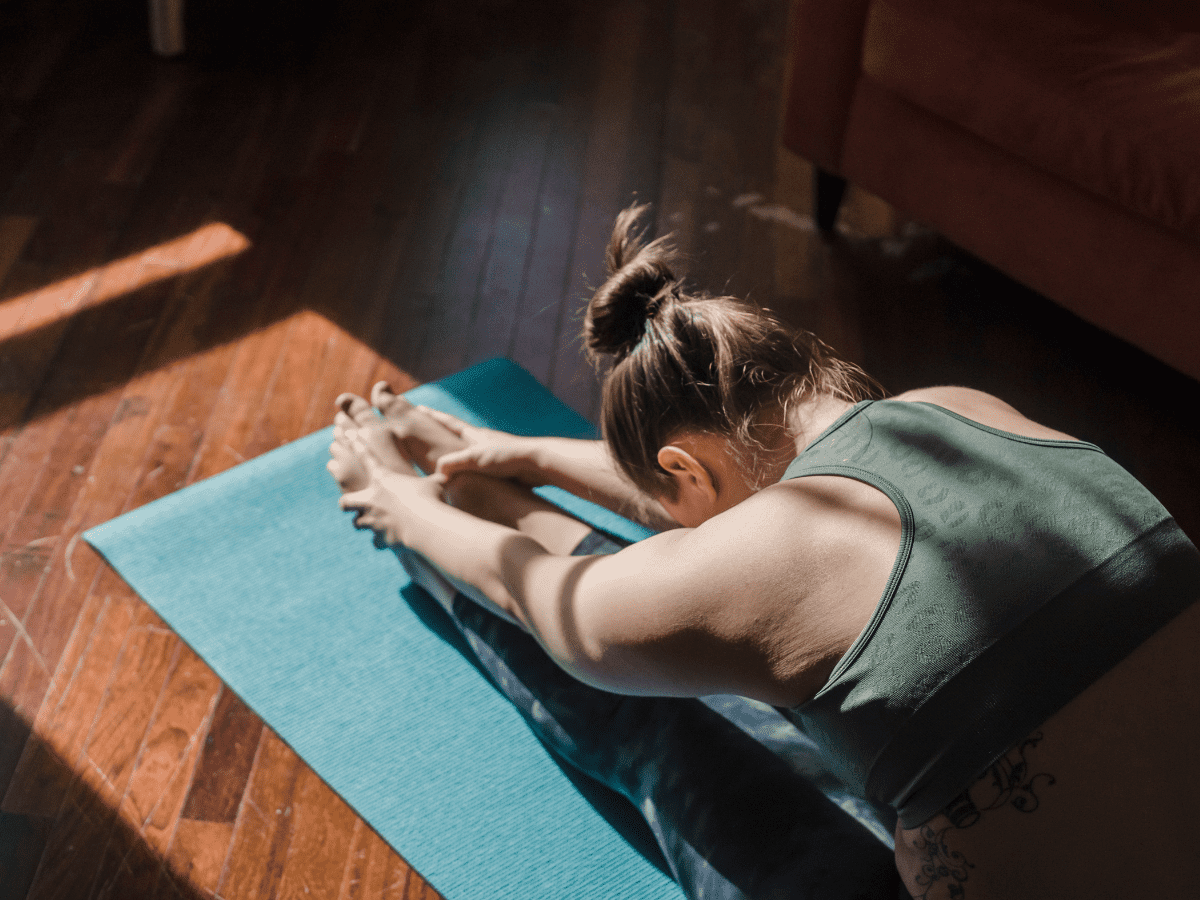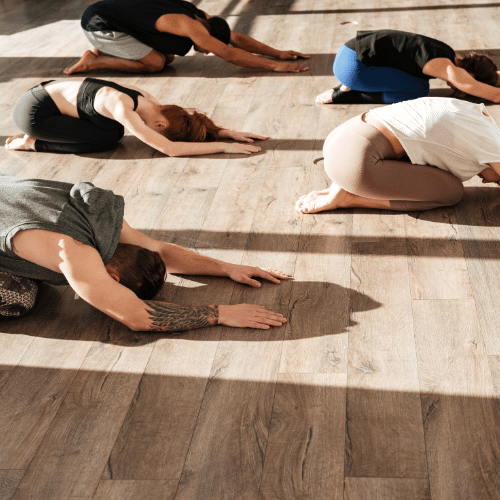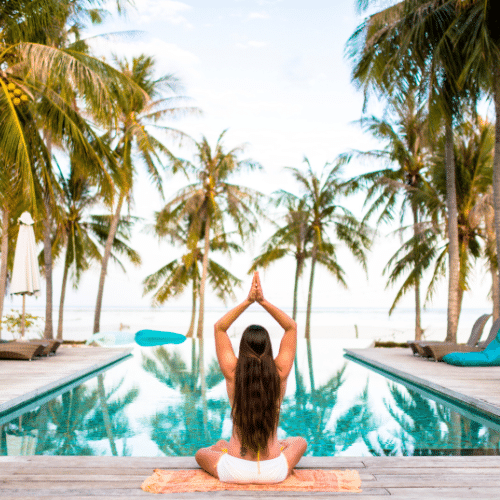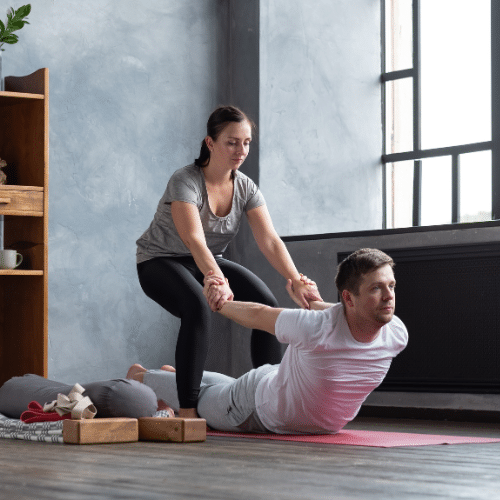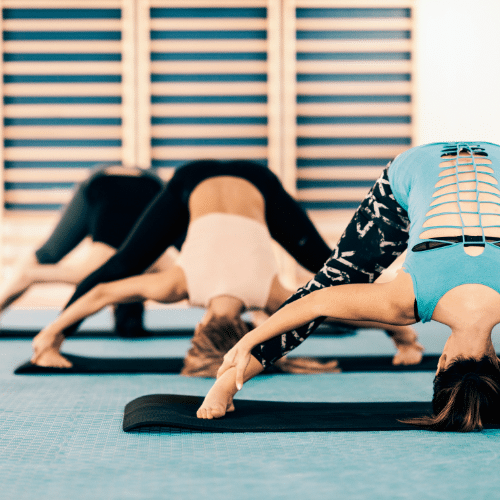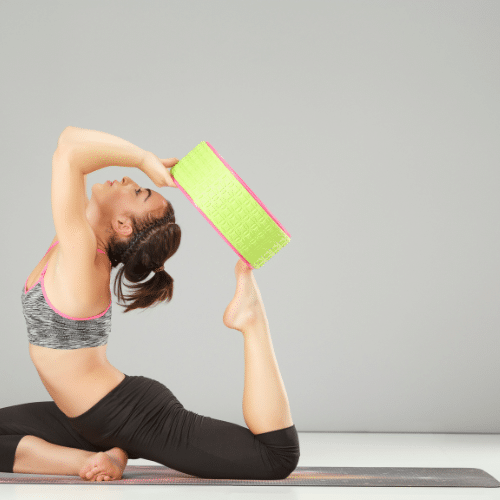In Tantric Hinduism, the body features six chakras, wheels of spinning energy that integrate one’s spiritual and physical selves. The chakras are focal points of healing, fulfillment, and knowledge. So, when they become blocked or imbalanced, one experiences distress or illness. It’s important to know how to unblock chakras if you begin feeling this way.
The Kundalini yoga tradition is an ancient practice for realigning these chakras. Intentional, conscientious movement unblocks the chakras and helps the energy flow more easily, creating a sense of inner balance.
Today, yoga practitioners focus on seven chakras that correspond to the body’s key energy centers. Even with this new paradigm, the principle remains the same. By nurturing the flow of healing energy throughout the body, the yogini can align their desires, physiological needs, and intuition.
Sadly, the modern world throws many wrenches into this delicate system of spinning wheels. Yoga is now essential to a balanced, flourishing body and mind.
The Seven Chakras
Sahasrara, the Crown Chakra
Associated with both wisdom and intellect, the Crown Chakra is the seat of one’s spirituality. It connects intuition to the rest of the body. When the Crown Chakra is imbalanced, one may feel “stuck in their thoughts” or spiritually apathetic.
Vishuddha, the Third Eye Chakra
The third eye is one’s sense of intuition and awareness. When the third eye is open, one is receptive to the Universe’s vast knowledge. A blocked third eye leads one to rely on assumptions, ignore their “gut feeling,” or even disconnect from reality.
Ajna, the Throat Chakra
The throat chakra allows one’s energy to support clear, honest communication — both with themselves and others. The Ajna helps translate intuition, desire, and confidence into authentic self-expression. But when blocked, one might struggle to find the words. As a result, they avoid speaking or expressing their needs, or they resort to deception or overtaking.
Anahata, the Heart Chakra
Naturally, the heart chakra is associated with love and healing. A balanced Anahata supports compassionate, selfless actions, as well as self-care. When the heart chakra is blocked or misaligned, one may become apathetic or aloof, or even overbearing and codependent.
Manipura, the Solar Plexus Chakra
Also called the Navel Chakra, the solar plexus is the heart of one’s personal power. It drives energy to other chakras, creating confidence and clarity. An imbalanced solar plexus may cause indecisiveness or apprehension — or on the opposite end of the spectrum, arrogance or aggression.
Swadhisthana, the Sacral Chakra
The sacral chakra aligns with one’s creativity and passion — intellectually, emotionally, and sexually. It is the center of desire and ambition. When blocked, libido and self-confidence may drop. It can be hard to feel emotionally available or inspired.
Muladhara, the Root Chakra
Like a mighty tree, every body draws nourishment and strength through its roots. The Muladhara is one’s connection to the Earth, which creates their sense of safety and trust. When the root chakra is balanced, one feels grounded and content. Imbalance may lead to fear or insecurity.
How to Unblock Chakras through Yoga Poses
Virabhadrasana, the Warrior Pose
The warrior pose unleashes one’s inner power by integrating the entire body. Energy flows throughout opposing forces in this dynamic standing pose. Virabhadrasana balances the root chakra as the practitioner focuses on their connection to the earth. Meanwhile, the heart chakra benefits from radiating energy while the crown of the head lifts, stimulating one’s sense of wisdom and connection.
Ustrasana, the Camel Pose
The camel pose appears passive, but it is anything but. This gentle backbend opens the chest, encouraging the Heart Chakra to open. The glutes engage as well, stimulating the Sacral and Root Chakras. As a result, the practitioner may release their emotional and creative blocks while maintaining a grounded position. The camel pose is ideal for rediscovering the senses of both stability and joy.
Navasana, the Boat Pose
The boat pose requires the abdominals, quadriceps, and latissimus dorsi to achieve synchrony in this powerful shape. Thus, Navasana stimulates the navel, root, and heart chakras. In boat pose, the practitioner feels confident, proactive, and courageous. The solar plexus spins freely, cultivating a firm yet humble sense of self-esteem.
Vrksasana, the Tree Pose
The tree pose creates a deep sense of grounding, as though one’s roots are flowing deep into the Earth. Naturally, this helps balance the Muladhara. The core muscles must engage as well, stimulating the solar plexus and driving the Earth’s energy straight up to the Crown Chakra. The tree pose helps one rediscover a sense of stability, confidence, and insight.
Savasana, the Corpse Pose
Commonly entered at the end of a practice, Savasana is a wonderful pose for releasing mundane concerns, reconnecting with the breath, and allowing the chakras to spin freely. It creates a sense of both grounding and weightlessness, helping all seven chakras to become aligned and balanced.
Wrapping Up
Yoga has many benefits, from increased stamina to deep relaxation. However, one of its greatest effects is the realignment and re-balancing of the chakras. The Kundalini tradition regards the body’s energy centers as integrated wheels in a perpetual-motion machine.
To thrive in one’s desires and intuition, those wheels must keep turning, driving the Universe’s energy into a gentle flow throughout the body. Many yoga styles, including Vinyasa, seek to cultivate this flow, thereby healing the practitioner from within. Practitioners may move seamlessly through the ancient poses or hold them to stimulate the chakras.
As long as they honor their body’s needs, these movements help unblock and realign their chakras, supporting a healthier and more vibrant existence.
If you need some help learning how to open chakras, we can help at Zuda yoga. Try chakra yoga poses for 30 days for only $30.


